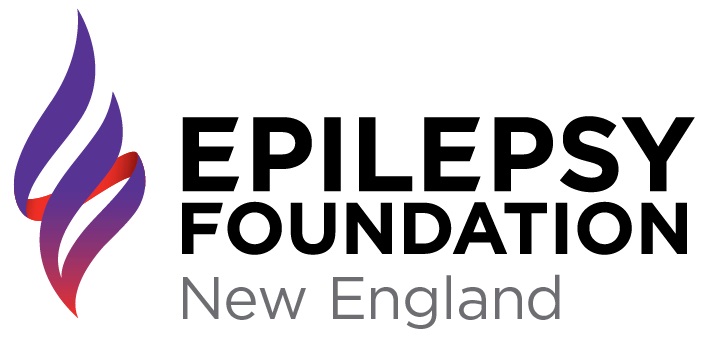Seizure First Aid
Available Trainings
Safety First
The first line of response when a person has a seizure is to provide general care and comfort and to keep the person safe. For most seizures basic seizure first aid is all that may be needed, while more serious seizures may require a greater degree of care.
What To Do When Someone Is Having A Seizure
Although each type of seizure can bring its own signs and symptoms, there are a few key actions every responder should take to help the person experiencing the seizure stay safe until the seizure passes or until emergency help arrives.
Always Stay With the Person Until the Seizure Is Over
- Seizures can be unpredictable and it’s hard to tell how long they may last or what will occur during them. Some may start with minor symptoms, but lead to a loss of consciousness or fall. Other seizures may be brief and end in seconds.
- Injury can occur during or after a seizure, requiring additional medical assistance. If you are concerned about an injury having taken place call 911 immediately.
Make Sure Their Breathing is Okay
- If the person is lying down, turn them on their side, with their mouth pointing towards the ground. This prevents saliva from blocking their airway and helps the person breathe more easily.
- During a convulsive or tonic-clonic seizure, it may look like the person has stopped breathing. This happens when the chest muscles tighten during the tonic phase of a seizure. As this part of a seizure ends, the muscles will relax and breathing will resume normally.
- Rescue breathing or CPR is generally not needed during these seizure-induced changes in a person’s breathing.
Pay Attention to the Length of the Seizure
- Time the seizure – from beginning to the end of the active seizure.
- Time how long it takes for the person to recover and return to their usual activity.
- If the seizure lasts longer than the person’s typical seizure, call for additional assistance.
- If your loved one has seizures know when to give 'as needed' or rescue treatments, if prescribed, and when to call for emergency help. Your loved one’s doctor can assist in educating your family about how to best help in the event of a breakthrough seizure.
Stay Calm - Most Seizures Only Last a Few Minutes
- Do your best to remain calm, it will help others stay calm too.
- Talk calmly and reassuringly to the person during and after the seizure – it will help as they recover from the seizure.
Prevent Injury by Moving Nearby Objects Out of the Way
- Remove sharp objects.
- If you can’t move surrounding objects or a person is wandering or confused, gently help steer them clear of dangerous situations, for example away from traffic, train or subway platforms, heights, or sharp objects.
Make the Person as Comfortable as Possible
- Help them sit down in a safe place.
- If they are at risk of falling, call for help and lay them down on the floor.
- Support the person’s head to prevent it from hitting the floor.
Keep Onlookers Away
- Once the situation is under control, encourage people to step back. Waking up to a crowd can be embarrassing and confusing for a person after a seizure.
- Ask one person to stay nearby in case further help is needed.
Be Sensitive and Supportive, and Ask Others to Do the Same
- Seizures can be frightening for the person having one, as well as for others. People may feel embarrassed or confused about what happened during the seizure. Keep this in mind as the person wakes up.
- Reassure the person that they are safe.
- Once they are alert and able to communicate, tell them what happened in very simple terms.
- Offer to stay with the person until they are ready to go back to normal activity or call someone to stay with them.
What NOT To Do When Someone Is Having A Seizure
Several misconceptions still exist about how to best respond to an individual who is experiencing a seizure. Here is a look at what NOT to do, and how to best control the situation until the seizure passes or emergency help arrives.
DO NOT Forcibly Hold the Person Down
- Trying to stop movements or forcibly holding a person down does not stop a seizure. Restraining a person can lead to injuries and make the person more confused, agitated or aggressive. People do not fight on purpose during a seizure. However, if they are restrained when they are confused, they may respond aggressively.
- If a person tries to walk around, let them walk in a safe, enclosed area if possible and stay with them.
DO NOT Put Anything in the Person's Mouth
- Jaw and face muscles may tighten during a seizure, causing the person to bite down. If this happens when something is in the mouth, the person may break and swallow the object or break their teeth.
- Do not worry - a person cannot swallow their tongue during a seizure.
DO NOT Give Water, Pills or Food by Mouth Unless the Person is Fully Alert
- If a person is not fully awake or aware of what is going on, they might not swallow correctly. Food, liquid or pills could go into the lungs instead of the stomach if they try to drink or eat at this time.
- If a person appears to be choking, turn them on their side and call for help. If they are not able to cough and clear their air passages on their own or are having breathing difficulties, call 911 immediately.
When to Call for Emergency Medical Help
In most cases, basic first aid care is all that will be needed for an individual experiencing a seizure. However, emergency medical help should be contacted in the case of particularly extreme or irregular seizure events.
A responder should not hesitate to contact emergency medical help if:
- A seizure lasts 5 minutes or longer.
- One seizure occurs right after another without the person regaining consciousness or coming to between seizures.
- Seizures occur closer together than usual for that person.
- Breathing becomes difficult or the person appears to be choking.
- The seizure occurs in water.
- Injury may have occurred.
- The person asks for medical help.

The Epilepsy Foundation New England is here to serve and assist the epilepsy community. We partner with the Epilepsy Foundation of America to provide access to information, resources, and support for our constituents.
